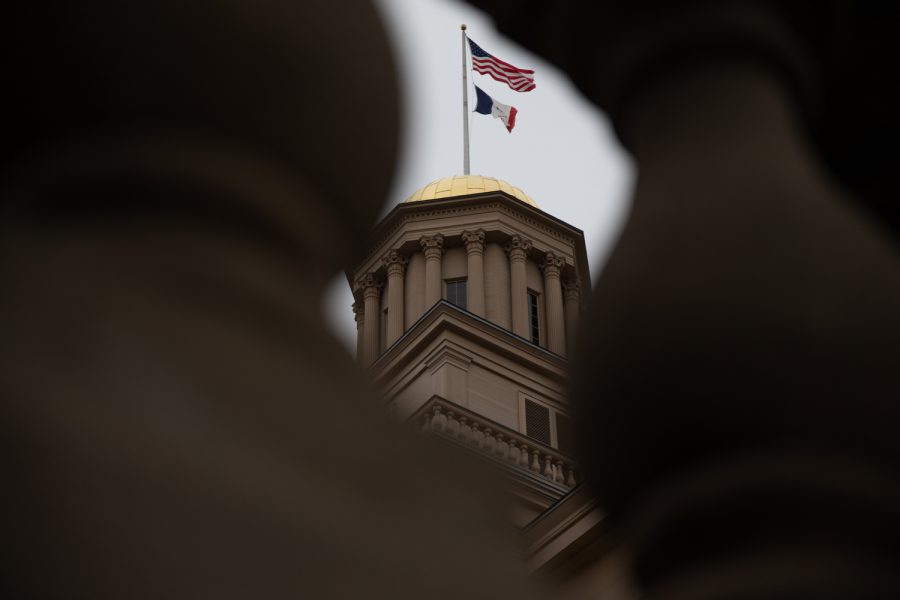The Old Capitol is seen in Iowa City on Sunday, March 26, 2023.
Point/Counterpoint | Should student loan debt be erased?
Debates continue in the U.S. Senate over student loan forgiveness. Opinions Columnist Naomi Rivera Morales and Shahab Khan on how the U.S. should act.
March 28, 2023
Yes
Debt accrued from student loans should be forgiven.
Student debt has been a large burden for many people. According to the Federal Student Aid website, student loan forgiveness would mean that you will not have to pay back any loans, whether that is all of it or some of it.
President Joe Biden’s student loan forgiveness plan, which is tied up in legal battles, would forgive student loan debt up to $10,000 for most borrowers earning less than $125,000 a year. Some borrowers eligible for a federal Pell Grant would receive an additional $10,000 in loan forgiveness.
Discharges toward student loans could also be available for any individuals that need them, including those with a permanent disability or those attending an academic institution that has shut down or closed.
By forgiving, canceling, or discharging student loans, individuals would be able to use the money they would have spent on loans toward something else where they need to spend money. This could involve house payments, car payments, or any other large financial bills or tasks.
As Sen. Bernie Sanders has expressed on many occasions, people deserve to attend and access the best education that they can. He mentions, too, that we have failed this generation, and I would agree.
Every individual that we encounter carries a different story and a different ability in this world. Not everyone is able to get what another gets. Not everyone can reach as far as another. We are so used to being told that, “Life is unfair,” and though that is true in several cases, why should that stop us from trying to make it as fair as it can be?
A quote is not an excuse to stop trying. I believe that everyone deserves to access an education without worry or stress of financial burdens. When given the chance to break away from such burdens, we are giving a nation of people the opportunity to reach further in life.
No
A blanket cancellation on student loans is a poor policy that will exacerbate inflation in the short run. It also mostly benefits a select number of high-income earners.
If the federal government were to cancel student loans today, many high-income earners would gain the equivalent of stimulus checks, as they would have even more money to spend.
This would lead to an exacerbation of the current bout of inflation in the U.S., as people who have had their debt canceled would essentially be the benefactors of a giant increase in wealth. An increase in the inflation rate would lead to a decrease in the rest of America’s purchasing power, as Americans will be able to buy fewer things on their current salaries.
Even if we ignore the inflationary pressures of student loan cancellation and evaluate the policy on the merits of redistribution, it becomes clear that it would benefit high income earners the most.
Most of the student debt in the U.S. is owned by people who will have high future income earnings, as these students have been in school for longer. Almost 40 percent of student debt is held by students seeking either a professional or master’s degree, even though they make up only 18 percent of borrowers.
Simply put, the people that owe the most student debt will not have trouble paying off their student loans, as they will or are currently making high incomes. Canceling student loans for these people will just shift the cost to the federal government and taxpayers in lower income brackets than the student debtors.
In other words, student debt cancellation serves the same purpose as a tax cut for the rich.
